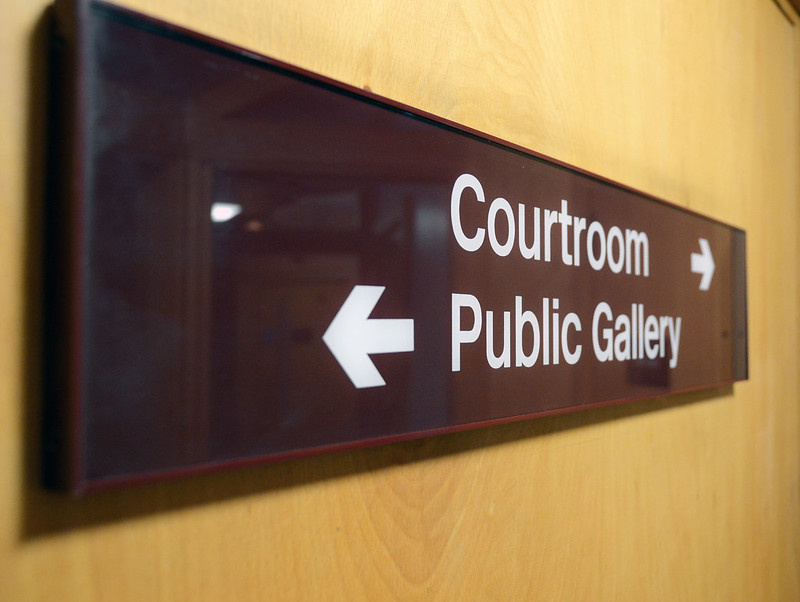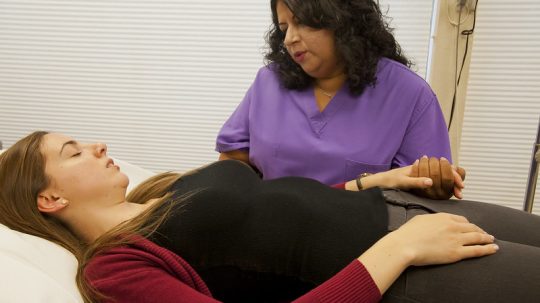Content warning: The following article talks about abortion law in the UK. Some of the names in this article have been changed.
Laura was a 20-year-old university student when she was sentenced to two years in prison for illegal abortion. Her abusive boyfriend had bought the pills online and asked her not go to the doctor, the Sunday Times reported in 2022.
The police were at Laura’s bedside in the hospital and she was taken in for questioning once her condition was stable. “The prosecution said if I didn’t plead guilty, I would likely go to prison for life, I felt like I had no other choice,” she told the Times.
Laura isn’t the only one…
Laura is not alone. A 44-year-old mother of three, a 25-year-old Oxford woman, a couple – both 24 years old – a 22-year-old and a 15-year-old are all on the radar for unexplained pregnancy losses. In the past year, Britons have increasingly faced police scrutiny over suspected illegal abortions, according recent data.
Another woman was sentenced to 28 months in prison after pleading guilty to using the abortion pill mifepristone at 32 to 34 weeks during lockdown. An appeal judge suspended the sentence to 14 months in July, saying that the “sad case” required “compassion, not punishment”.
The 25-year-old Oxford-based mum, whose identity has been protected, had her case dropped in December 2022 after the judge was “flabbergasted” to see it in court.
In 2021, a 15-year-old girl’s phone was searched, in what would go on to be a year-long investigation. The coroner concluded that the teenager’s pregnancy ended due to natural causes. MSI Reproductive Choices, a charity and abortion provider, said it also knew of cases where the 1861 law had been used to investigate women and girls who had lost their pregnancies through natural causes.
Charges against Bethany Cox, the fourth woman in eight months to appear before a UK judge, were dropped, due to there “no longer being a realistic prospect of conviction”.
Between April 2014 and December 2021, at least 36 women were questioned by police over pregnancies that allegedly ended outside of the time frame outlined in the Abortion Act 1967. According to an investigation by National World, Jonathan Lord, medical director of MSI Reproductive Choices, called the situation “very disturbing”.
According to Lord, prosecutors are becoming increasingly aggressive against women suspected of having undergone an illegal abortion. “The spike in number of investigations is an unfortunate by-product of scores of women opting for medical abortions,” the consultant gynaecologist at the Royal Cornwall Hospitals NHS Trust told the Independent.
Abortion law in the UK
The abortion law in the UK dates back to the middle years of the Victorian era – the Offences against the Person Act 1861. Under this, anybody who provides or uses a poison or instrument to end a pregnancy shall be prosecuted and imprisoned, with the maximum sentence being life. In 1929, the Infant Life (Preservation) Act was passed, creating a further criminal offence of the deliberate destruction of a child capable of being born alive.
In 1967, a major overhaul to the 1861 Act took place as a response to the deaths of women from backstreet abortions, resulted in the Abortion Act 1967, which makes lawful activities that would constitute a crime under the 1861 Act. In practice, the new law allowed abortions up to 28 weeks with the consent of two doctors. The upper limit of conditional abortion was lowered to 24 weeks in 1991, without repealing the Act.
Abortions are by law, only allowed after 24 weeks if two medical practitioners confirm that the mother’s life is at risk or the child would be born with a severe disability. This is more restrictive than several European countries, which allow ‘on-demand abortions’.
Nearly half of the general public (49%) think that the 24-week limit is justified, while a quarter (25%) think it is too late, the latest survey by YouGov shows.
Before the pandemic, women had to visit a clinic to gain access to abortion pills. From 2020, women in the first ten weeks of pregnancy have been allowed to request at-home abortion pills.
The number of legal abortions carried out in England and Wales in 2021 was 214,256 – the highest since the Abortion Act 1967 came into force. Of this total, 206,664 were performed in England. One possible reason for the record number could be the increased availability of early abortion pills (mifepristone and misoprostol). Research indicates that 89% of abortions took place before the tenth week of pregnancy in 2021, compared with 78% in 2011.
A rise in reporting
Recorded crimes, including separate charges of procuring an illegal abortion, the intentional destruction of a viable unborn child and concealing an infant death pre-birth, rose from 28 in 2020 to 40 in 2021, up from merely eight cases in 2012, the Independent reported, quoting Home Office data for England and Wales.
As well as destroying women’s trust in reproductive healthcare, in circumstances where medical professionals have allegedly tipped off the police, this could amount to a breach of patient confidentiality. The resulting investigations have often resulted in cases of severe post-traumatic stress disorder (PTSD). Loss of women’s confidence in the medical profession will have serious consequences in terms of identifying abuse, domestic violence and exploitation, which are often unearthed in NHS consultations.
Katherine O’Brien, of the British Pregnancy Advisory Service (BPAS), told the Independent, “Police contacted BPAS for client records when they had no evidence of wrongdoing. There is an upward trend in vulnerable women facing lengthy criminal investigations and unless there is action from the Crown Prosecution Service [CPS] and parliamentarians, more women will face criminalisation.”
Buffer zones continue to be a target
Historically, abortion clinics in the UK have been targets for some activists campaigns against its services and the individuals seeking support from them.
Protests outside anti-abortion clinics in the UK have risen in numbers, size and levels of outrage in recent times. Anti-abortion activists in the UK are very small in number but are exceptionally well organised and funded, according to Lord.
BPAS has reported protest activity at 47 clinics in the UK since 2017. Since 2018, anti-abortion demonstrations have taken place at 42 clinics across England and Wales, and more than 100,000 women were subjected to anti-choice harassment while attending an appointment in 2019. Following the passing of legislation on buffer zones, 15 centres in the UK have reported protesters still having been present.
According to government statistics, 77% of people in the UK would support a ban on such protests in the vicinity of abortion clinics, while 14% oppose it.
Access and the court of public opinion
One in ten people think it is very difficult to get an abortion in the UK while 9% think it is quite easy. Some groups, campaigning against abortion, have attempted to block abortion rights in the UK at least 50 times in recent decades without success. “It is easy for anti-abortion activists to see this as a difference between life and death but it is the same for women seeking abortions,” said Dr Pam Lowe, a sociologist who specialises in anti-abortion activism in the UK, when speaking to the Independent.
Just over half of the UK public, 52%, believe that women who have abortions outside of the time limit should not face criminal prosecution. In particular, young women opposed prosecution in greater numbers (64% of the under 40s).
In July 2022, the Royal College of Obstetricians and Gynaecologists, the Royal College of Midwives, Amnesty International and Liberty, as well as numerous barristers, signed a letter to Max Hill, the then director of public prosecutions (DPP) for England and Wales, asking for urgent guidance to “stop the prosecution of women who end their pregnancies, with immediate effect”.
In December 2023, Stella Creasy, Labour MP for Walthamstow, tabled an amendment to the Criminal Justice Bill to decriminalise abortion in England and Wales. According to YouGov data, 74% of people surveyed support changing the law to introduce a legal right to abortion, with 11% against further changes to the legislation.
This article was produced under the Knowing Our Rights: Storytellers programme, launched by EachOther and Goldsmiths Law at Goldsmiths University, London. You can find out more about this exciting programme here.





